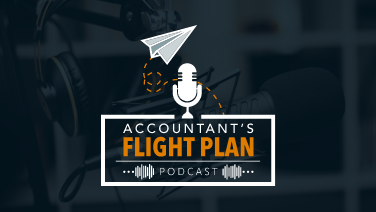
“The best time to plant a tree was 20 years ago. The second-best time is now.”
~ Chinese Proverb
So how does this quote relate to accounting practice sales? Well, we’ll try to provide you with some clarity on just that. The truth is the absolute best succession plan is to build a better CPA practice. If you want to get a great price and clean terms at the closing table, then making your practice as marketable as possible is the key. The good news is that top-notch CPA firms sell for cash at closing at multiples of greater than one times gross with no contingencies based on client retention.
Hopefully you are reading this a few years ahead of the actual time that you intend to sell your CPA firm. For those of you finding this column who are immediately ready to go to market, this column will also help you get incredibly strategic on how to go about it.
First, it’s crucial to put yourself in the shoes of a potential buyer and look at your accounting practice from that vantage point. By looking at your firm critically from afar, you will get insights about the strengths and weaknesses of your practice.
There are two primary reasons that anyone buys an accounting practice and a few important secondary reasons which ultimately impact the first two.
Hopefully after reading this, you will never look at your accounting firm in quite the same way again. On second thought, this is going to sound so simple and so obvious that it shouldn’t even need to be spelled out, but here it goes…
The two primary reasons that anyone buys an accounting practice are:
- Cash flow to owner
- Freedom of time for the owner
There are four secondary reasons that anyone buys an accounting practice. They are:
- Jump to another level; economy of scale
- Pick up great staff
- Cross-selling opportunities to existing client base
- Gain valuable intellectual capital
We’ve been selling CPA practices since 2003 and I can tell you without hesitation that regardless of what buyers may say their reasons are for buying, the two primary reasons stated above are what the buyer’s brain is primarily focusing on. Sadly, for many owners, they have lost this focus and as a result, have not been running their firms optimally. As a seller, you must remember to look at your business through this paradigm if you want to maximize the proceeds at closing and minimize your difficulty upon exit. So, let’s cover each of these in more detail.
Cash flow to owner
For most buyers who look at your practice, they will be interested in the practice as long as it covers these three items:
1. Debt service-This is one many sellers don’t fully appreciate. Let’s say you have a $1 million practice. Let’s also assume that the buyer can purchase with only a 10% injection, which means that they will need to borrow $900,000 for the acquisition. Further, let’s assume that they will also have to borrow another $100,000 for working capital. After all, you’ve got to have some working capital! So, the buyer invests $100,000 and borrows $1,000,000 for the practice, and finances that over 10 years. If they can borrow at 5.5%, their annual payments will be just over $130,200 per year…or about 13% of the purchase price.
2. Their labor-What would it cost to replace the owner? Suppose the buyer were an investor and looking at buying a CPA practice with limited involvement. They would need someone who is trustworthy, hardworking, dependable and knowledgeable. How much would that cost? In the example of a $1,000,000 practice, I would estimate that in most markets it would likely cost at least $150,000 to $200,000 per year, with that amount increasing over the next decade, so that’s another 15 to 20% of the purchase price.
3. Risk- There needs to be a risk premium for the purchase of a business. Luckily for professional practices in most areas, the risks are lower than in many business ventures. Client retention rates tend to be strong when the transition and post-closing integration is handled well. Overall, accounting practices tend to be stable, dependable businesses, but there are still risks. There needs to be a profit or reward, or else, why buy any business? I’ve heard that this required return will be anywhere between 10% to 25% for a small business.
The bottom line- In our hypothetical example, the ideal cash flow to owner for a $1,000,000 practice is about $380,000. If you really want to get top-dollar for your firm, you need to put an emphasis on making changes that increase cash flow to owner. We’ve seen past clients make significant changes in owner cash flow by utilizing proven methods to increase profitability and hiring someone to keep them accountable for implementation, like a business coach.
Freedom of time for the owner
Increasingly, buyers want to be able to buy a CPA practice and also have a reasonable schedule. I started my career at Ernst & Young, and back then it was normal to work 2,500 to 3,000 hours a year as a staff accountant. I for one am thankful that those days are mostly gone. As a business owner, there are times when long hours are necessary, but those compressed schedules should be rare. Buyers are interested to know how many hours per year that sellers work. The fact is that practices with low owner hours will sell more easily and for more money. Cutting owner hours can significantly impact the results of a sale. This too is doable with some time and effort. For some tips on this, read What would happen if you started working less?
The secondary reasons buyers purchase an accounting practice
These generally apply to buyers who are either existing firms or buyers getting into or expanding into the CPA space. These would not be applicable for the individual buyer who is looking to break out on their own.
1. Scale
There is definitely an economy of scale in the accounting profession. From our experience, there are many points where there are advantages of scale. Perhaps the most dramatic advantages we’ve observed are when firms go from $1 million to $3 million and also when practices go from $3 million to $5 million. It also can be incredibly difficult to achieve that growth organically. There are a number of points of complexity that are difficult to push through. An acquisition can literally help a buyer accomplish that scale overnight. A $5 million CPA firm can essentially be a self-managed entity; meaning that the owner or managing partner can have very low involvement and potentially no day-to-day activities.
2. Great staff
Underutilized staff can be a huge asset for a firm that needs more capacity. According to a recent accounting and financing employment trends post by Robert Half, “Companies looking to hire highly skilled accounting and finance professionals continue to face a shortage of job candidates. As a result, competition for top talent can be fierce. Many employers are increasing salaries and bonuses, and offering more robust work-life balance options, to attract top talent.” Furthermore, they reported that the unemployment rate for accountants and auditors was only 1.4% in the 4th quarter of 2017, while the national unemployment rate was 4.1%. According to the CPA Accounting Institute for Success, there are currently over 650,000 CPAs in the United States, but that the number of CPAs has been relatively stagnant in the last decade. If you look back to the 1990’s, the number of first time CPA candidates in the US has declined by about 20%.
A firm that needs capacity can buy a practice that has the talent it wants and needs. These people can be very quickly utilized more effectively and more profitably by the acquiring firm. Work can also be reallocated so that low complexity work can be done by less experienced and less expensive people.
3. Cross-selling opportunities
There are an increasing number of qualified buyers in the marketplace that are neither individual buyers nor traditional CPA firms. Instead, they are in other financial-related businesses like wealth management, insurance and even law. The CPA arguably enjoys the most trusted business advisor status with clients. From the clients’ perspective, the CPA has the most intimate knowledge of their financial affairs. CPA firms with high net-worth clients are very attractive to companies in the financial services industry. Many of these financial services companies have developed good models for acquiring and operating CPA firms. For them, the CPA firm acquisition has the potential to be quite lucrative both in terms of recurring annual revenue and business value. Financial services firms typically sell for much higher multiples than do CPA firms.
4. Intellectual capital
We are just now beginning to see online CPA firms being bought and sold. Cloud-based firms with remote teams have developed new methodologies for running high-growth firms that have great profit potential. We have seen buyers pay a premium to acquire this intellectual capital in order to take these businesses to the next level as well as to adopt best practices into their current firms.
Selling now? Get strategic and stay focused!
If you are ready to put your practice on the market now, my advice is to keep working on making improvements to your firm. (Plant the tree now.) A simple 5% to 10% improvement in cash flow to owner can be enough to make a significant difference. In fact, that small change can make all the difference in the way a bank looking to make an acquisition loan sees the practice. Also, when you go to market, you may find new motivation to work on your practice to make it more attractive.
If you can create positive trends to cash flow and owner hours, it will only help you make the case to buyers that there is tremendous opportunity in your practice. For owners that don’t have a few years to create significant change in their practices and want to sell now, there are several other things you can do right away such as:
Clean up your office. Remove clutter and paper files, consider fresh paint and new carpeting if needed. Get the outside of the building looking its best. Curb appeal is important in making a positive first impression. It can also help to get an objective friend or client to make suggestions. It’s easy to miss things since you come to the office every day.
Bring your books up to date. Accountants can be like the shoemaker’s children. It’s not a good excuse. You need to have good records so that buyers can easily access the data they need to assess your firm.
Clean up your accounts receivable while you are at it! In most of our transactions, the accounts receivable are not included in the purchase price of the accounting practice. However, slow collections will reflect negatively on the practice.
Be clear about your reasons for selling. This is something all buyers want to know about. Along these same lines, it’s helpful to have clear and concrete plans for what you will do after the sale.
Understand what your practice is worth. Pricing it well and marketing it well have a big impact on finding the right buyer and getting the best price and terms.
Run your business first. Selling can be a big distraction if you allow it to be that way. It’s important to keep your eye on the ball while you are marketing your firm. Trying to sell to the “wrong” buyer can take an extraordinary amount of time and energy, and those buyers usually don’t end up making it to the finish-line anyway.
Focus on fit. Each buyer will value your practice differently. The best match will be based on several factors such as risk tolerance, financial position, capacity for taking on more work, technical abilities, management style, interpersonal skills, etc. The key to getting the best deal is to talk with buyers who represent the best match. Poe Group Advisors has a tried-and-true process that buyers go through to allow our clients to focus on spending time with the best candidates. We gather all of the buyer information to properly assess each buyer, and then help to sift through and enter discussions with multiple buyers at once. This also allows our clients to maintain a healthy focus on their practices for sale which are more marketable.
About the Author
Brannon Poe: Brannon is the founder of Poe Group Advisors and has been facilitating successful accounting practice transitions throughout the US and Canada since 2003. He is also the creator of Accounting Practice Academy. Brannon is the author of the Accounting Practice Insights Blog and hosts the Accountant’s Flight Plan” podcast with other top thought-leaders in the accounting profession. Brannon is an E&Y alumnus. He has worked with some of the most successful and seasoned CPAs in the industry and has been privy to the behind-the-scenes methods that these clients have used to build highly profitable practices along with capable and independent teams. Brannon has authored multiple books, including Accountant’s Flight Plan – Best Practices for Today’s Firms (published by both the AICPA and CPA Canada) and On Your Own: How to Start Your Own CPA Firm, Second Edition (published by the AICPA). Brannon is passionate about entrepreneurship and is the president-elect of EO Charleston (Entrepreneur’s Organization)





